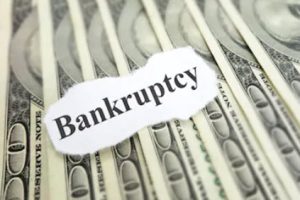Does Bankruptcy Eliminate A Personal Guarantee?

Over the years, business loan underwriting standards have become progressively tougher. A personal guarantee, or a partial personal loan guarantee, could be the difference between denial and approval. That’s especially true if the business is experiencing financial challenges. Usually, if the business is unable to repay the loan, the guarantor is financially responsible for the payments. But that’s not true in all cases.
A personal guarantee might have seemed like a good idea at the time. Unfortunately, financial circumstances change, and legal documents usually don’t adjust to these changes. If a personal loan guarantee prevents you from moving forward in life, a Chicago bankruptcy lawyer can help you find a way out. Personal bankruptcy is designed for people like you who need a fresh financial start.
Business Guarantees
Typically, lenders demand personal guarantees for unsecured loans, like a commercial property lease. Personal guarantees are uncommon in secured debts, like auto loans. The lender already has security in these situations.
Unsecured debts, as well as unsecured personal guarantees, are usually dischargeable in bankruptcy. If a court discharges (forgives) the loan, the personal guarantee is meaningless.
Actually, discharge in a Chapter 7 or Chapter 13 bankruptcy is more like a discharge option. Debtors can continue making payments on these loans, at least in most cases. An Internet Service Provider agreement is a good example. If a debtor signed a twelve-month contract, the debtor probably wants this contract to remain in effect. Obviously, the provider won’t honor that contract unless the provider is paid according to its terms.
After debtors file bankruptcy, these terms often change. Bankruptcy doesn’t just eliminate debts. Legally, bankruptcy eliminates all debt agreements, unless the debtor agrees to reaffirm all terms. So, bankruptcy gives a Chicago bankruptcy lawyer an opportunity to renegotiate key terms, such as the interest rate and payment schedule. Lenders are motivated to make favorable deals in these situations. If they don’t, the court will discharge the debt, leaving the creditor with almost nothing.
Briefly, Chapter 7 bankruptcy eliminates most unsecured debts within nine months. Chapter 13 gives debtors up to five years to make catch-up payments on secured debts.
PLUS Loans
Parent Loan for Undergraduate Students are in a special category. PLUS loans have roughly the same effect as a personal guarantee. Someone else, usually a college student, benefits from the loan proceeds, at least directly.
However, student loans are priority unsecured debts in an Illinois bankruptcy. Student loans are dischargeable if the debtor has an undue hardship. In the Prairie State, these debtors have undue hardships if they cannot live above the poverty line if they repay the loan, they have made a good faith effort to repay the debt, and the hardship will probably last for all or most of the repayment term. This standard is difficult to meet.
Furthermore, the parent, as opposed to the student, is the listed borrower on a PLUS loan. So, the parent, and not the student, is financially responsible for repayment.
All that being said, as mentioned above, an attorney can negotiate with a bank and obtain more favorable repayment terms. Bankruptcy judges supervise these negotiations, to ensure that both parties negotiate in good faith.
Work with Dedicated Cook County Lawyers
No matter what kind of financial problem you are having, bankruptcy could be a way out. For a free consultation with an experienced bankruptcy attorney in Chicago, contact the Bentz Holguin Law Firm, LLC.


